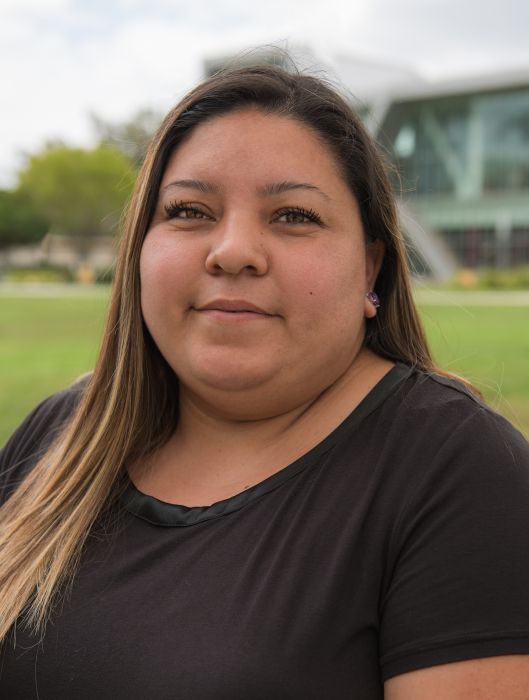
Bertha (Betty) Solares, a human services major and sociology minor at California State University, Dominguez Hills (CSUDH), has endured much in her life: an abusive mother, teen pregnancy, an abusive husband, drug addiction, and depression.
At her lowest point she was living on the streets, had lost custody of her child, and wound up in jail twice. When Solares learned she was pregnant with her second daughter, she made the decision to turn her life around.
Today, Solares carries a 3.6 GPA at CSUDH, and she is not letting her troubled past cripple her. Instead, she is using it as her inspiration to help and serve others.
Solares’ story and success has garnered her California State University’s (CSU) 2016 CSU Trustees’ Award for Outstanding Achievement, the CSU’s highest recognition of student achievement. Trustees awards provide scholarships of $6,000 to $12,000 to CSU students–24 this year–who demonstrate superior academic performance, personal accomplishments, community service and financial need.
When I learned I had received the award I was very happy because I needed to find a way to pay for the rest of my bachelor’s degree,” said Solares, a Long Beach resident who expects to graduate in spring 2017. “Then, when I learned how important it was–that I was the only person at Cal State Dominguez Hills to get the award–I got even more excited. I cried.”
Solares was named the Trustee Peter and Coralyn Taylor Scholar and received $6,000. She and the other scholars were publicly recognized by the CSU Board of Trustees, CSU Foundation Board of Governors, faculty, students, and staff during the CSU Board of Trustees meeting on Sept 20.
Active on campus, Solares is co-president of the Human Services Student Association. She also finds time to volunteer at the Tarzana Treatment Centers, working with patients recovering from substance abuse and/or being treated for mental health issues. She also works with the counselors at the center, creates and updates treatment plans for patients, and administers questionnaires when they first arrive.
“Working at the Tarzana Treatment Centers has opened my eyes to a lot, particularly how mental health problems not only affect the people who have it, but also the people who are around them–their families, the community, and everyone else,” said Solares, who hopes to work in a probation department after college, but has had some difficulty so far due to her police record.
Solares also aspires to earn her Master in Social Work someday, and begin saving for her two daughters to go to college.
“I really want my daughters to do something with their lives–to get careers. My parents never talked to me about going to college. Just joining sports when I was in high school was a real problem for them. I wanted to play football, and in response my mom said, ‘That’s a boy’s sport. If you join the team I’m going to cut all your hair,’” said Solares. “But my older daughter is in so many clubs and sports in high school (her other daughter is 10 years old). I really enjoy seeing her grow. I’m so proud of her.”